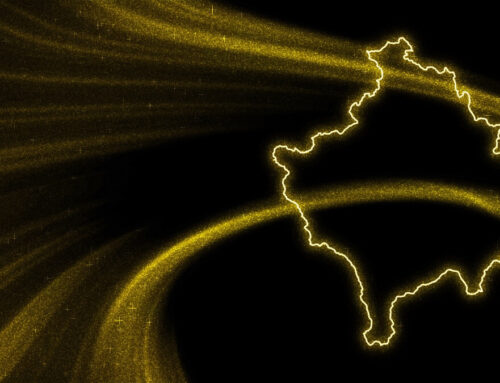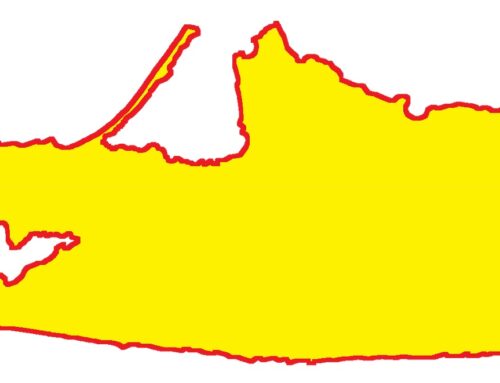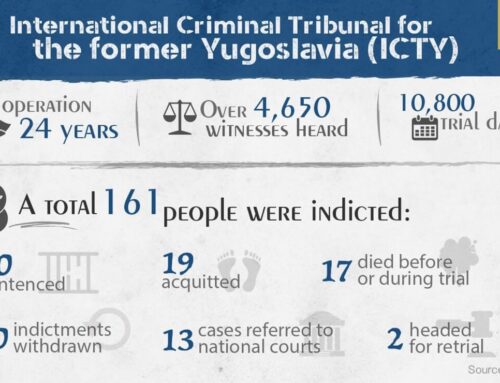The same as all over the globe, COVID-19 reached Romania and pressured the government into directing all the resources to the containment of the situation. Even if the number of cases has never approached the highs of Western Europe, the country was confronted with its fair share of challenges ranging from unconstitutional lockdown measures to the immense debacle which comes with a large emigrant population.
The saving grace of an early lockdown
Romania, as most of Eastern European countries, didn’t face a high number of COVID-19 cases Western Europe. On 15th May 2020, there were 17.036 infected, 1.107 deaths and 9.930 healed[1]. The number of new cases has also reached a plateau, now with under 200 new cases per day. The situation is quite tame if we were to compare it to France, where there were reported 91.529 cases and 27.529 deaths[2]. Even in comparison to Germany, one of the states who is praised to have handled the situation the best with its 175.699 cases and only 8.001 deaths[3], Romania stacks up quite good.
There are multiple explanations for this ranging from a lower population density, lower rates of tasting, lower number of older people due to a lower life expectancy in general to just simply a lower number of flights to and from China. However, there is an explanation that stands out from the rest – the implementation of an early lockdown[4]. Well aware of its vulnerabilities, the government determined that if the situation were to worsen, the country’s health system would not endure.
The lockdown begun as the country entered a state of national emergency in the middle of March. Through a series of military ordonnances, the circulation of citizens was heavily restrained: manifestations were banned, borders were closed, flights were canceled, and grain exports were prohibited. State of national emergency lasted for two months and was subsequently replaced in May with a state of national alert, which brought some lessening of the measures. Certain stores and venues could reopen, and no letter of attestation was needed anymore when moving inside the city of residence, however it is still required when traveling between towns.
The unconstitutional lockdown fines
Failure to comply with the measures of the lockdown resulted in hefty fines for the average Romanian citizens. Since the beginning of the state of emergency, the state’s authorities have issued fines to the amount of approximately 120 million euros[5]. The lofty sum resulted from an increase in the amount of the fines by the government which transpired in the beginning of April. Consequently, the lowest amount for a person who was violating the lockdown was 413 euros (2.000 lei) and the highest was 4.132 euros (20.000 lei). However, there was no clear delimitation between which offenses required which type of fines. This situation led to unrest inside the population, as the average salary in Romania is approximately 625 euros (3000 lei).
Given the above described situation, the Romanian Ombudsman, responsible for investigating complains made by citizens against governmental institutions, addressed the Romanian Constitutional Court in regards to the legality of these fines. The constitutional judges decided that the government did not indicate offences and fines in a clear and predictable way. In practice, this meant that the fines given for the lockdown violation were deemed unconstitutional and therefore could be challenged in court of law. However, it is important to have in mind that this doesn’t render the fines as automatically canceled[6].
Living the restrictions between a rock and a hard place
Romania’s emigrant population is the fifth largest in the world[7]. According to the newest statistics from 2016, 5.6 million people emigrated due to low incomes, poverty, corruption, and the poor quality of the political class[8]. Job cuts, travel restrictions and border shutdowns across Europe caught them between a rock and a hard place: Should they return home and risk infecting their families? Or should they remain in Western Europe and risk being unemployed due to job cuts?
Just in March, approximately 250.000 Romanians came back home, with the majority of them returning from Italy[9]. As immense numbers of flights have been canceled, many people had to travel by car. In order to return to Romania, they had to stay and wait at the Hungarian border where epidemiology tests were performed.
All the citizens that entered the territory of Romania had to be quarantined during the lockdown period. However, mid-May came with the restriction’s reduction and people coming from abroad were no longer required to stay in institutionalized quarantine for two weeks and could instead be isolated at home[10].
Sidestepping the lockdown right into exploitation
Many Romanians wanted to get into the country and many wanted to leave. Romanian seasonal workers were able to sidestep the lockdown due to the high demand for agriculture workers that Western Europe urgently needed in the middle of the crisis. However, many workers encountered numerous abuses once they arrived on site.
One country that found itself in need of foreign workers was Germany. The German Minister of Agriculture and Food introduced a special regime for foreign seasonal workers. Until the end of May, 80.000 persons were approved to enter German territory by specially arranged charter flights[11]. In order to set foot on German soil, all the seasonal workers had to have already a work contract. In these circumstances, it is up to the employers to assure a 14 days active quarantine for those workers and to provide them with hygienic conditions.
Be that as it may be, once in Germany, many Romanian citizens reported cases of mismanagement and exploitation. On a farm in Bavaria, workers denounced a lack of minimum hygiene standards, non-compliance with contractual conditions and intimidation by the employer. The employer did not respect the governmental imposed quarantine for seasonal workers which were also not provided with masks and proper disinfectant[12]. On another farm, this time in North Rhine-Westphalia, workers accused their employer of exploitation as the salary which they were given was much lower than they previously agreed on.
Unsurprisingly, given the pandemic and the exploratory practices of some farmers, there were cases of Romanian seasonal workers who were infected with the COVID-19. A tragic instance occurred on a farm in Bad Krozingen, Baden-Württemberg, where a Romanian worker was infected and subsequently died while picking asparagus[13]. An additional case which attracted the attention of both the German and the Romanian media was the one of a slaughterhouse in Birkenfeld, Baden-Württemberg. In this slaughterhouse that provided work for 1100 employees in total, out of these 500 being Romanian citizens, 250 souls tested positive for COVID-19.
Not Great, Not Terrible
Looking at the bigger picture, the COVID-19 situation in Romanian is not terrible, as there is not a large number of infected cases and deaths. However, it’s not great either. If this crisis has made one thing clear it’s the country biggest vulnerability – a sloppy, disorganized government with a weak health system and an exploitable emigrant population.
Sources
- „Why has eastern Europe suffered less from coronavirus than the west?”, The Guardian, 5 mai 2020, https://www.theguardian.com/world/2020/may/05/why-has-eastern-europe-suffered-less-from-coronavirus-than-the-west, data accesării 15 mai 2020.
- „Coronavirus COVID-19 România”, https://covid19.geo-spatial.org/, data accesării 18 mai 2020.
- „France Coronavirus – Worldometer”, https://www.worldometers.info/coronavirus/country/france/, data accesării 26 mai 2020.
- „Germany Coronavirus – Worldometer”, https://www.worldometers.info/coronavirus/country/germany/, data accesării 26 mai 2020.
- „Amenzile pentru încălcarea ordonanțelor militare sunt neconstituționale”, https://www.digi24.ro/stiri/actualitate/amenzile-pentru-incalcarea-ordonantelor-militare-sunt-neconstitutionale-1302981, data accesării 16 mai 2020.
- „Cum motivează CCR neconstituționalitatea amenzilor. După publicarea motivării în Monitorul Oficial, acestea pot fi contestate”, https://www.digi24.ro/stiri/actualitate/cum-motiveaza-ccr-neconstitutionalitatea-amenzilor-dupa-publicarea-motivarii-in-monitorul-oficial-acestea-pot-fi-contestate-1306528, data accesării 16 mai 2020.
- „Romania’s emigrant population is the fifth largest in the world and growing, OECD report finds – Business Review”, https://business-review.eu/news/romanias-emigrant-population-is-the-fifth-largest-in-the-world-and-growing-oecd-report-finds-203223, data accesării 20 mai 2020.
- „Ministrul pentru romanii de pretutindeni: 9, 7 milioane de români trăiesc în afara granițelor țării, iar 5,6 milioane sunt în diaspora”, Europa Liberă România, https://romania.europalibera.org/a/ministrul-pentru-diaspora-9-7-milioane-de-romani-traiesc-in-afara-granitelor-tarii-iar-mai-mult-de-jumatate-sunt-in-diaspora/30073056.html, data accesării 14 mai 2020.
- „Despescu: 250.000 de români s-au întors în țară în martie. 50.000 au venit din Italia”, https://www.digi24.ro/stiri/actualitate/despescu-250-000-de-romani-s-au-intors-in-tara-in-martie-50-000-au-venit-din-italia-1285195, data accesării 17 mai 2020.
- „Timp de aşteptate de 300 de minute la Punctul de Trecere a Frontierei Nădlac/Toate persoanele sunt verificate epidemiologic.”, ro, https://www.news.ro/social/update-timp-asteptate-300-minute-punctul-trecere-frontierei-nadlac-toate-persoanele-trec-granita-verificate-epidemiologic-fie-intrarea-romania-fie-intrarea-ungaria-protest-soferilor-video-1922404216002020051519363765?source=biziday, data accesării 17 mai 2020.
- „Sezonierii români: nu toţi sunt bineveniţi în Germania”, COM, https://www.dw.com/ro/sezonierii-rom%C3%A2ni-nu-to%C5%A3i-sunt-bineveni%C5%A3i-%C3%AEn-germania/a-53477080, data accesării 18 mai 2020.
- „Germania: Recolta este în siguranţă, culegătorii români nu | DW | 24.04.2020”, COM, https://www.dw.com/ro/germania-recolta-este-%C3%AEn-siguran%C5%A3%C4%83-culeg%C4%83torii-rom%C3%A2ni-nu/a-53232738, data accesării 19 mai 2020.
- „Der Spiegel: «O viață pentru sparanghel?» | DW | 23.04.2020”, COM, https://www.dw.com/ro/der-spiegel-o-via%C8%9B%C4%83-pentru-sparanghel/a-53223939, data accesării 18 mai 2020.
- „Ce spune MAE despre românii infectaţi la abatorul din Germania: Din 1.000 de angajaţi, 500 sunt români”, ro, https://www.zf.ro/eveniment/ce-spune-mae-despre-romanii-infectati-la-abatorul-din-germania-din-1-19105951, data accesării 18 mai 2020.
[1] „Coronavirus COVID-19 România”, https://covid19.geo-spatial.org/, data accesării 18 mai 2020.
[2] „France Coronavirus – Worldometer”, https://www.worldometers.info/coronavirus/country/france/, data accesării 26 mai 2020.
[3] „Germany Coronavirus – Worldometer”, https://www.worldometers.info/coronavirus/country/germany/, data accesării 26 mai 2020.
[4] Shaun Walker Helena Smith, „Why has eastern Europe suffered less from coronavirus than the west?”, The Guardian, 5 mai 2020, https://www.theguardian.com/world/2020/may/05/why-has-eastern-europe-suffered-less-from-coronavirus-than-the-west, data accesării 15 mai 2020.
[5] „Amenzile pentru încălcarea ordonanțelor militare sunt neconstituționale”, https://www.digi24.ro/stiri/actualitate/amenzile-pentru-incalcarea-ordonantelor-militare-sunt-neconstitutionale-1302981, data accesării 16 mai 2020.
[6] , „Amenzile pentru încălcarea ordonanțelor militare sunt neconstituționale”.
[7] „Romania’s emigrant population is the fifth largest in the world and growing, OECD report finds – Business Review”, https://business-review.eu/news/romanias-emigrant-population-is-the-fifth-largest-in-the-world-and-growing-oecd-report-finds-203223, data accesării 20 mai 2020.
[8] „Ministrul pentru romanii de pretutindeni: 9, 7 milioane de români trăiesc în afara granițelor țării, iar 5,6 milioane sunt în diaspora”, Europa Liberă România, https://romania.europalibera.org/a/ministrul-pentru-diaspora-9-7-milioane-de-romani-traiesc-in-afara-granitelor-tarii-iar-mai-mult-de-jumatate-sunt-in-diaspora/30073056.html, data accesării 14 mai 2020.
[9] „Despescu: 250.000 de români s-au întors în țară în martie. 50.000 au venit din Italia”, https://www.digi24.ro/stiri/actualitate/despescu-250-000-de-romani-s-au-intors-in-tara-in-martie-50-000-au-venit-din-italia-1285195, data accesării 17 mai 2020.
[10] „Timp de aşteptate de 300 de minute la Punctul de Trecere a Frontierei Nădlac/Toate persoanele sunt verificate epidemiologic.”, News.ro, https://www.news.ro/social/update-timp-asteptate-300-minute-punctul-trecere-frontierei-nadlac-toate-persoanele-trec-granita-verificate-epidemiologic-fie-intrarea-romania-fie-intrarea-ungaria-protest-soferilor-video-1922404216002020051519363765?source=biziday, data accesării 17 mai 2020.
[11] „Germania: Recolta este în siguranţă, culegătorii români nu | DW | 24.04.2020”, DW.COM, https://www.dw.com/ro/germania-recolta-este-%C3%AEn-siguran%C5%A3%C4%83-culeg%C4%83torii-rom%C3%A2ni-nu/a-53232738, data accesării 19 mai 2020.
[12] , „Sezonierii români”.
[13] „Der Spiegel: «O viață pentru sparanghel?» | DW | 23.04.2020”, DW.COM, https://www.dw.com/ro/der-spiegel-o-via%C8%9B%C4%83-pentru-sparanghel/a-53223939, data accesării 18 mai 2020.
Picture: Source: https://www.ednh.news




